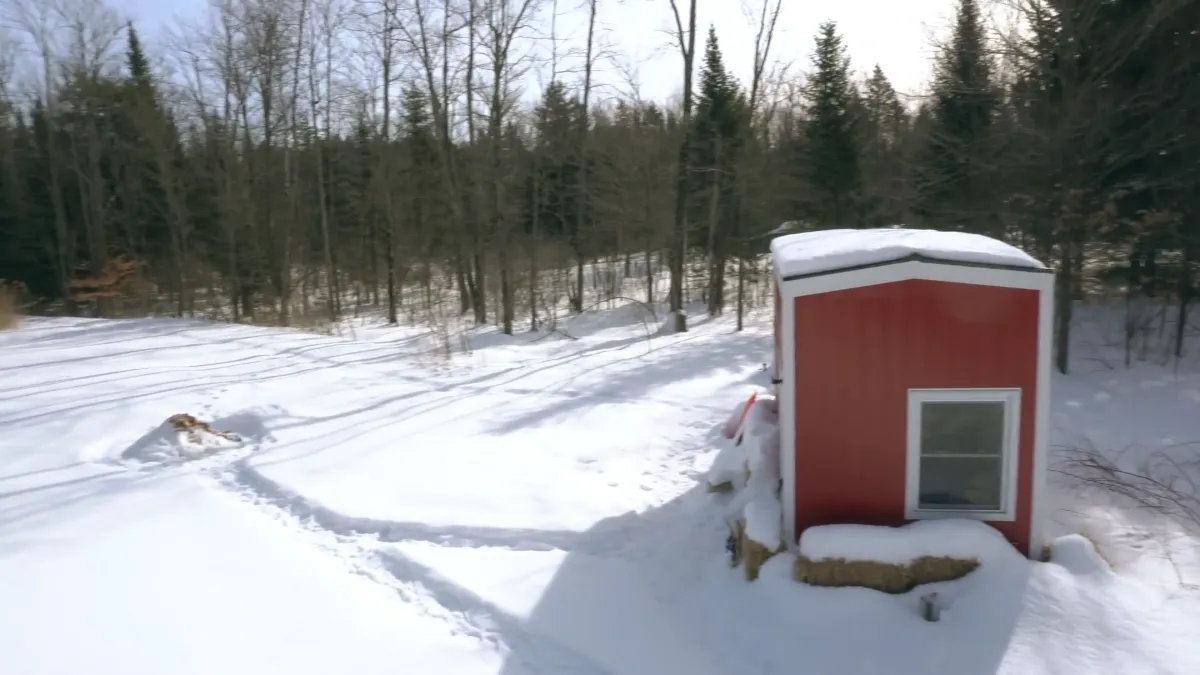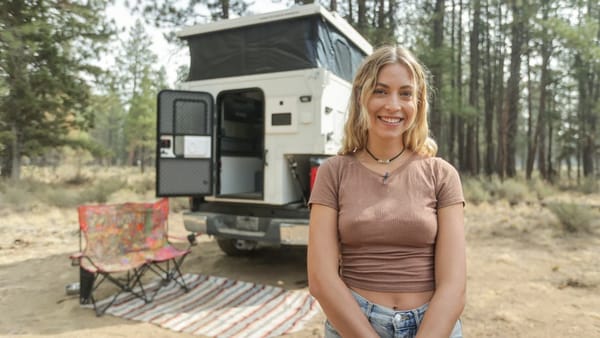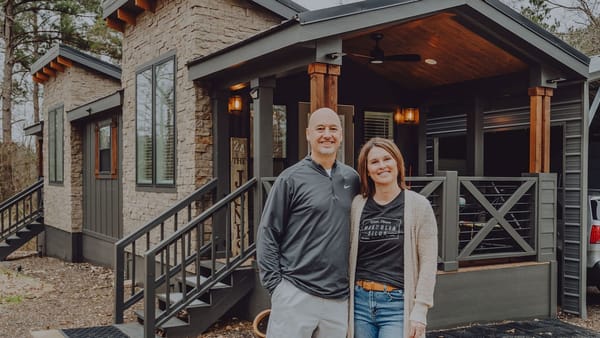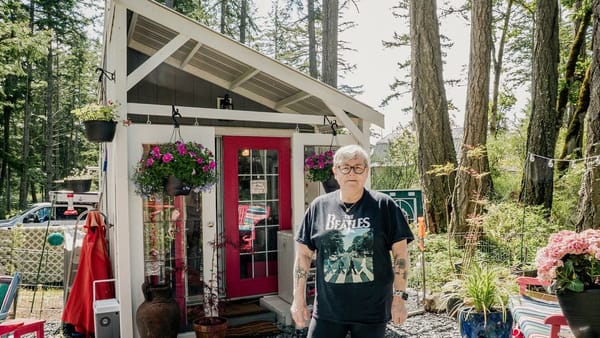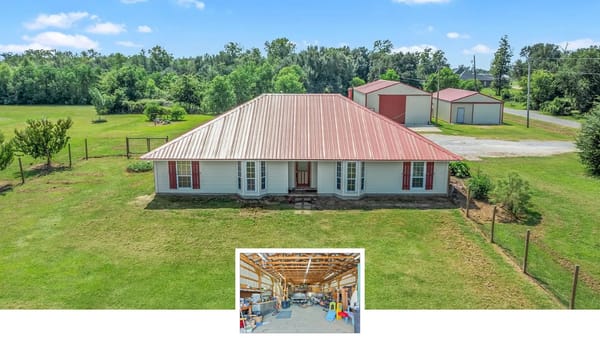Lily Mae, the Tiny House That Fits Her Life
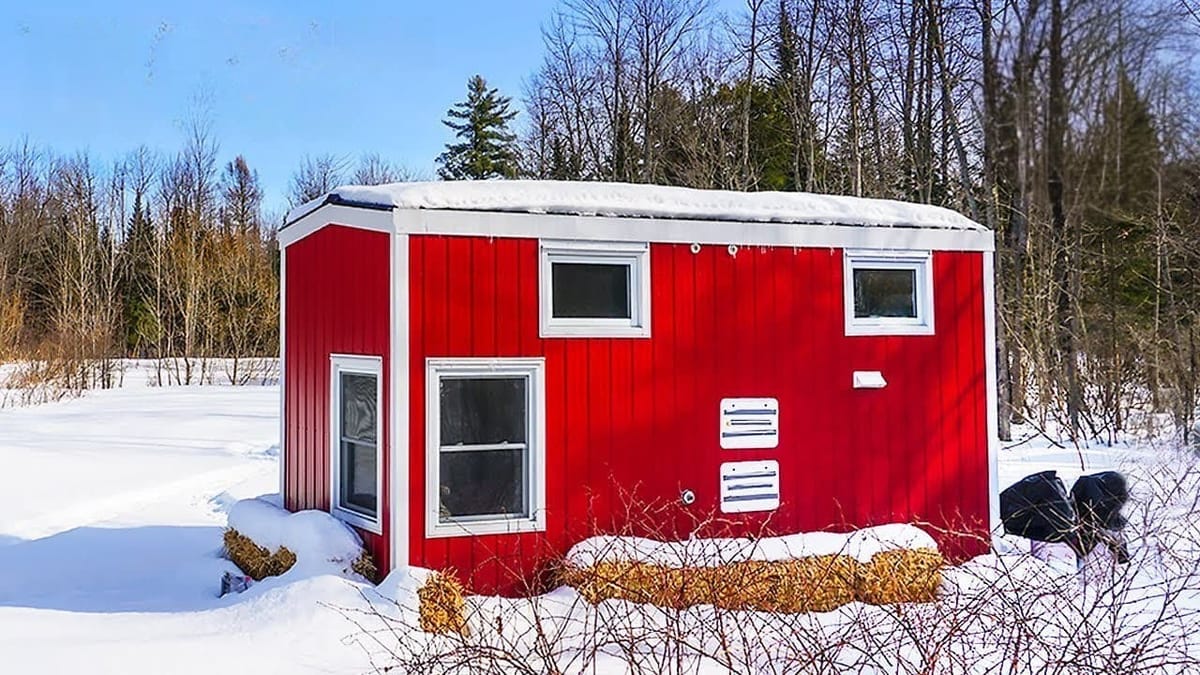
Christine wanted cozy, cheap, and simple—and built her life around it. The result is a tiny house that feels warm, stubborn, and very much hers.
The “Okay, I’m Doing This” Moment
It started with one of those spur-of-the-moment decisions that actually sticks. She watched a show, realized a trailer was the point of no return, and within a week put down six grand. No elaborate plan, just a receipt and a deadline.
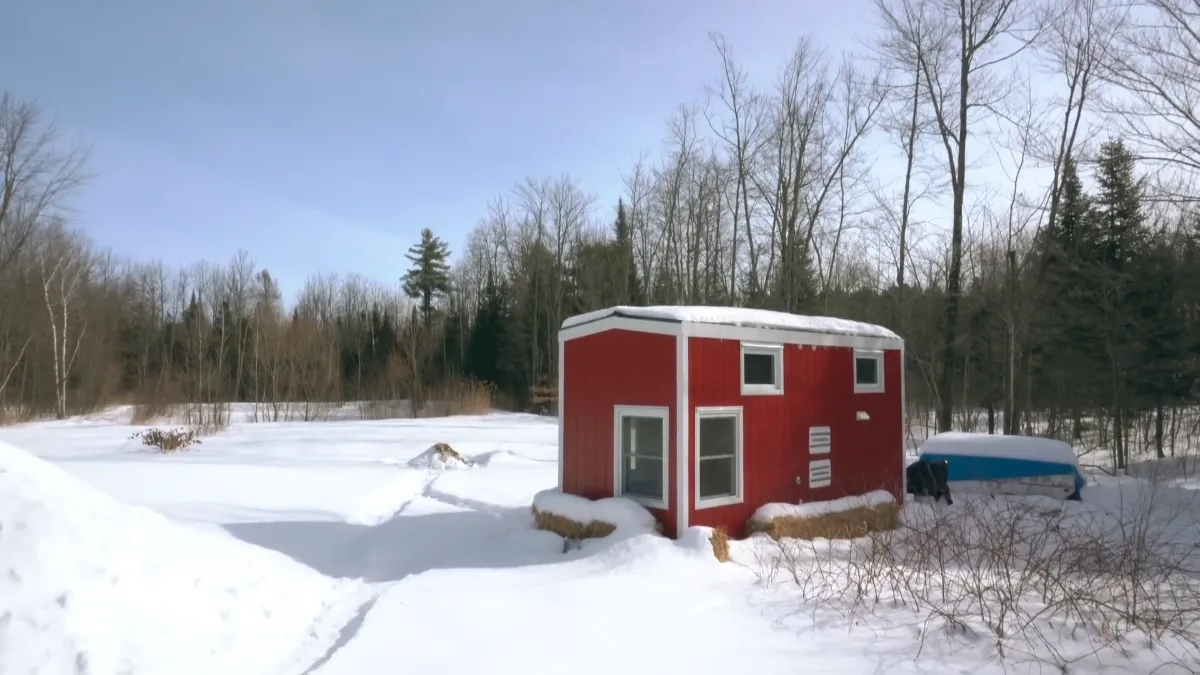
From there it turned into a family build. Her ex-husband—handy with tools—hauled the trailer to his place and got to work. The tiny house took shape in a place with sawdust on the floor and a lot of practical know-how.
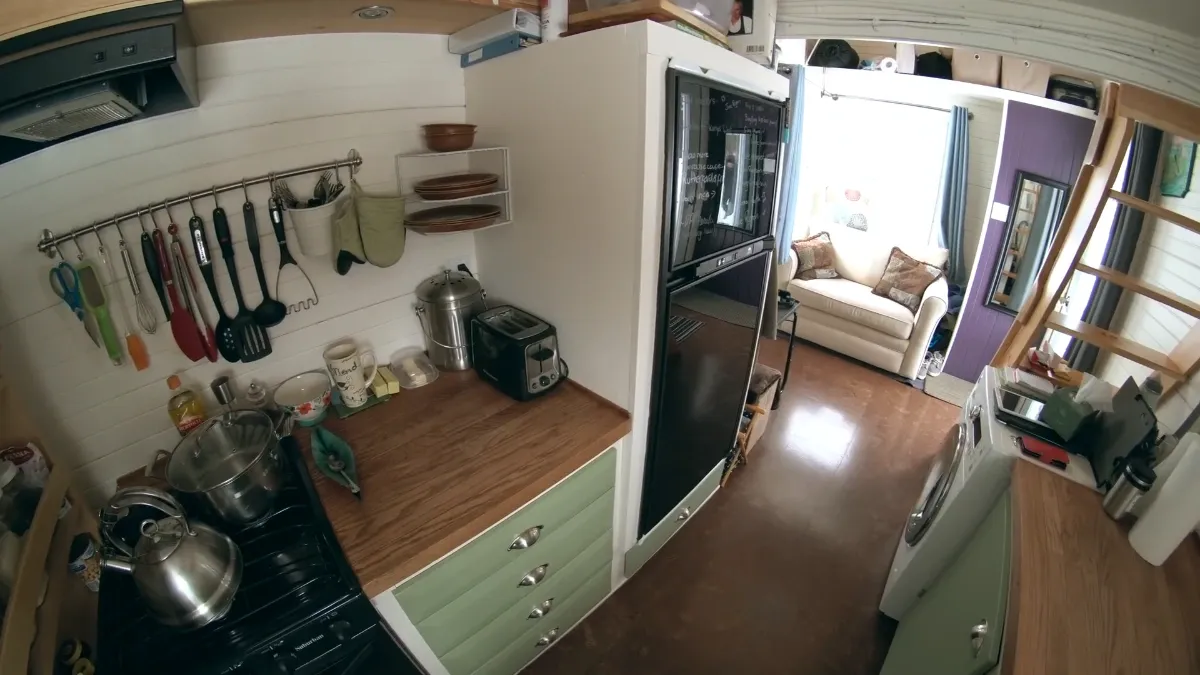
Now the home sits tucked behind a friend’s house, rented in kindness for the first year. Expenses are almost laughably low, and the big stress—housing—stopped being a monthly emergency.
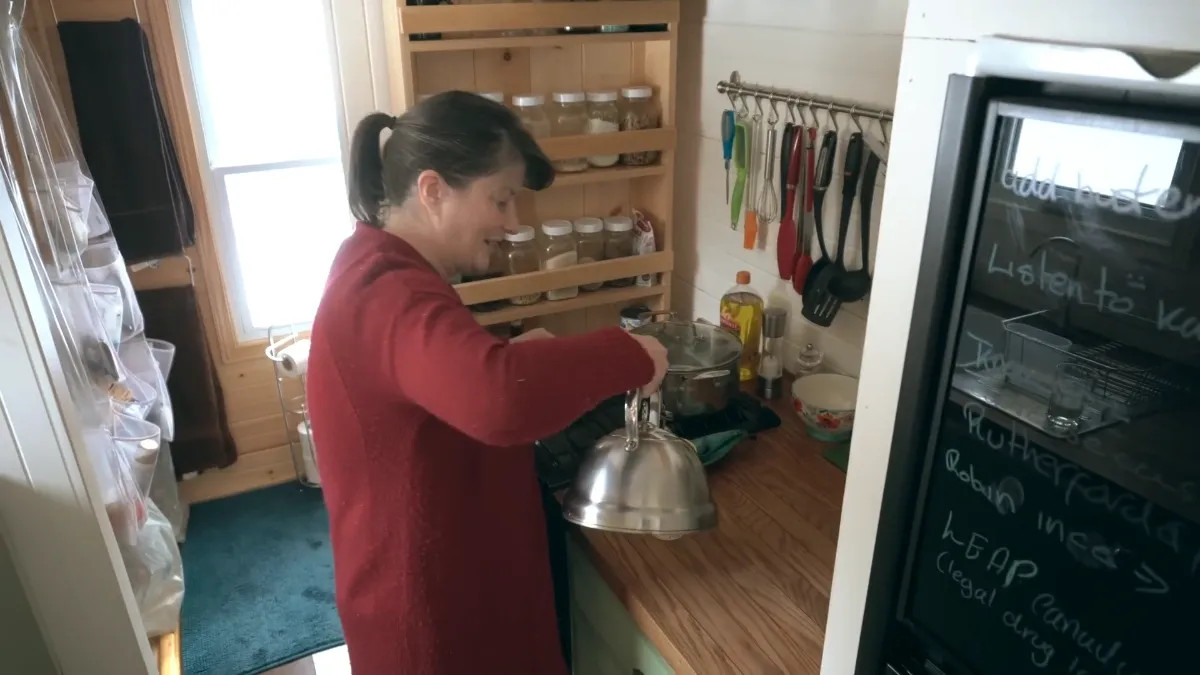
After Work, It’s Just Her and Lily Mae
By day, she’s a dental assistant with schedules, timers, and bright lights. Coming home means the exact opposite: quiet, no one to manage, just a small space that never asks for much.
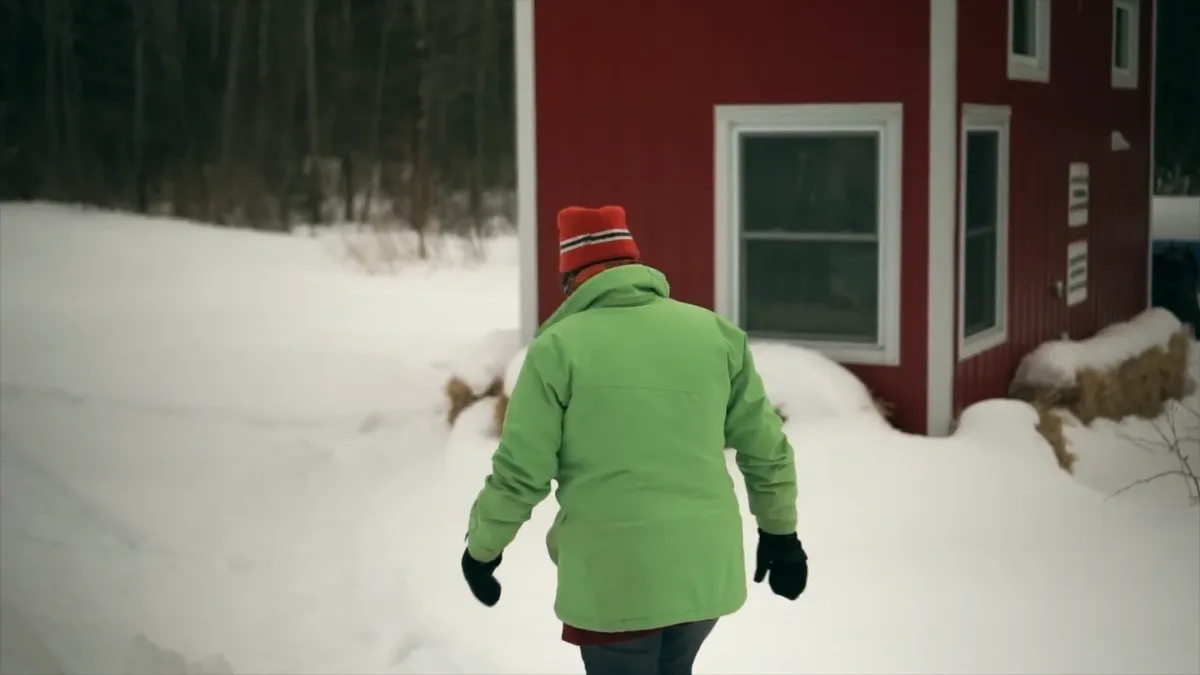
She named the house Lily Mae—half for her grandmother, half for her mom. The name stuck because it meant something, and because her mom held onto that detail even when other things were slipping.
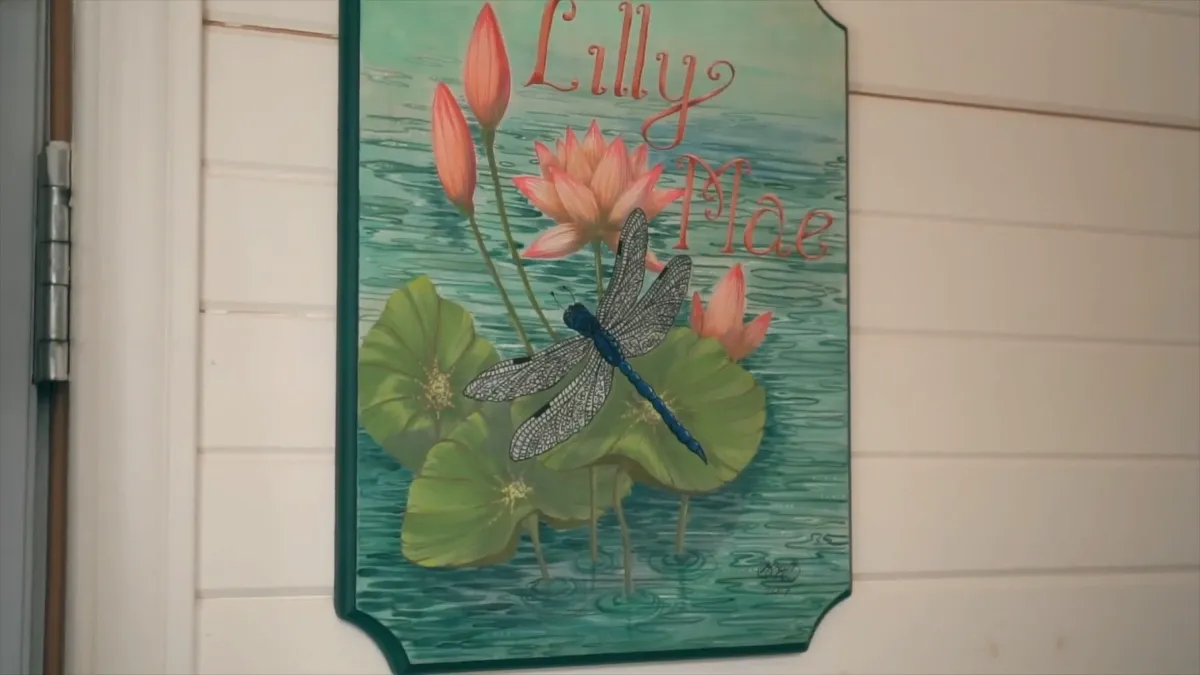
Walk In, You’re Basically in the Good Part
Front door opens straight into the living room, and the first thing you notice is real windows—no RV bubbles, just proper glass and daylight. The couch is the control center; lights, window latches, everything is within reach.
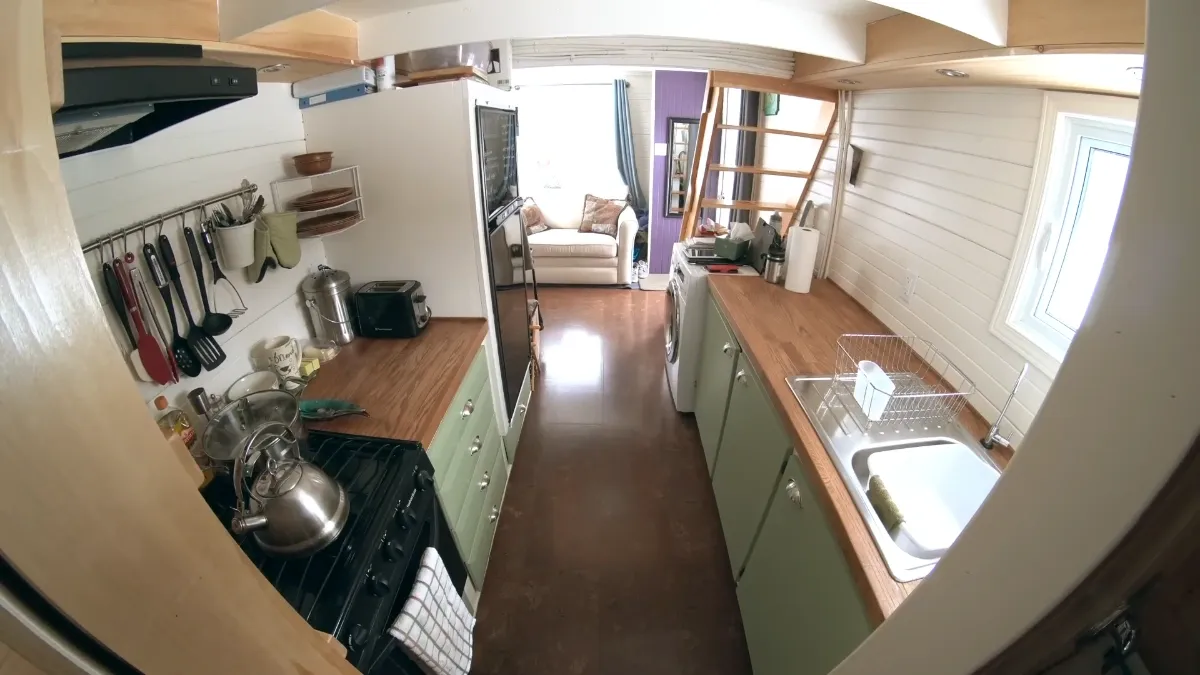
The kitchen looks like it belongs in a normal apartment, which is funny because the house is the size of a parking spot. There’s a three-burner stove with a real oven, all of it actually used, not just for show.
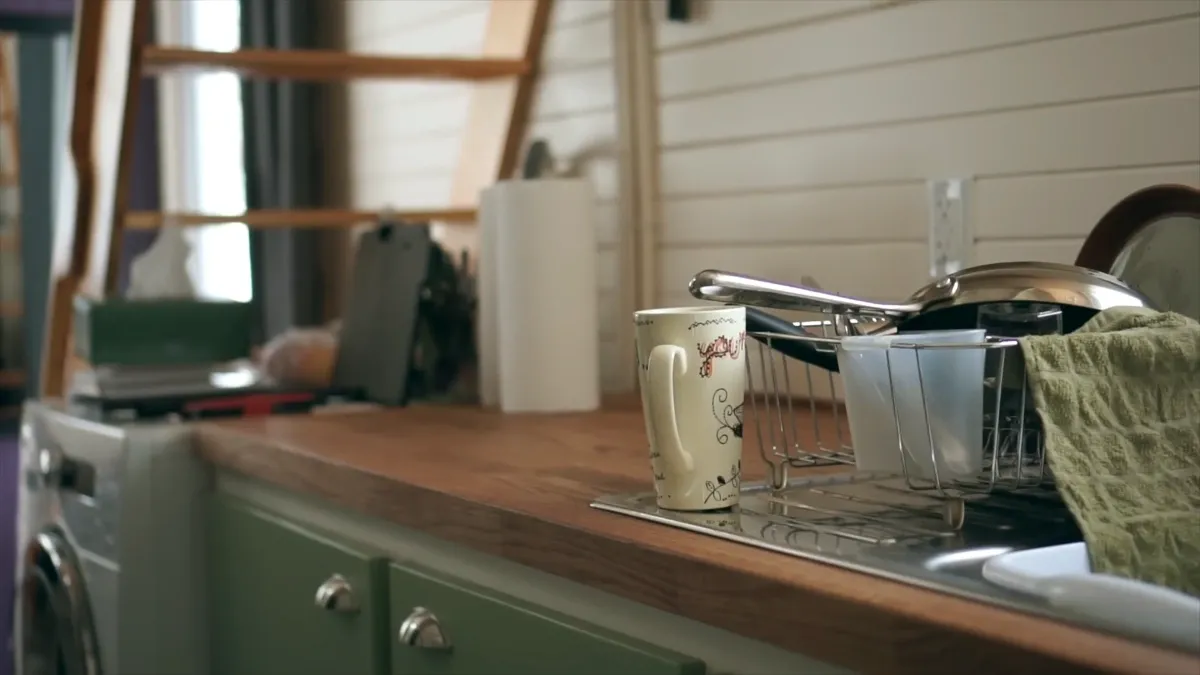
The pantry is a small victory—neat rows of jars found on the cheap and somehow perfect. Everything she needs fits, which is basically the thesis of the whole place.
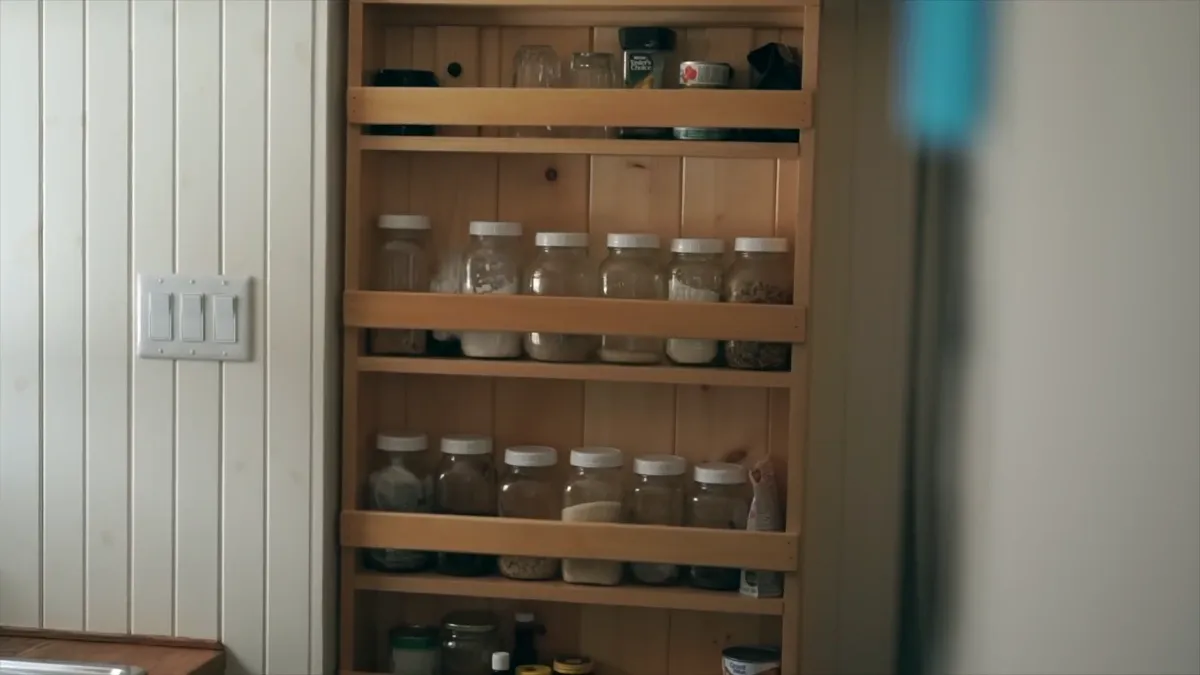
Up in the loft, the bed cozies right against a window. It doesn’t feel cramped because there’s sky right there, which tricks the brain into thinking the room is bigger than it is.
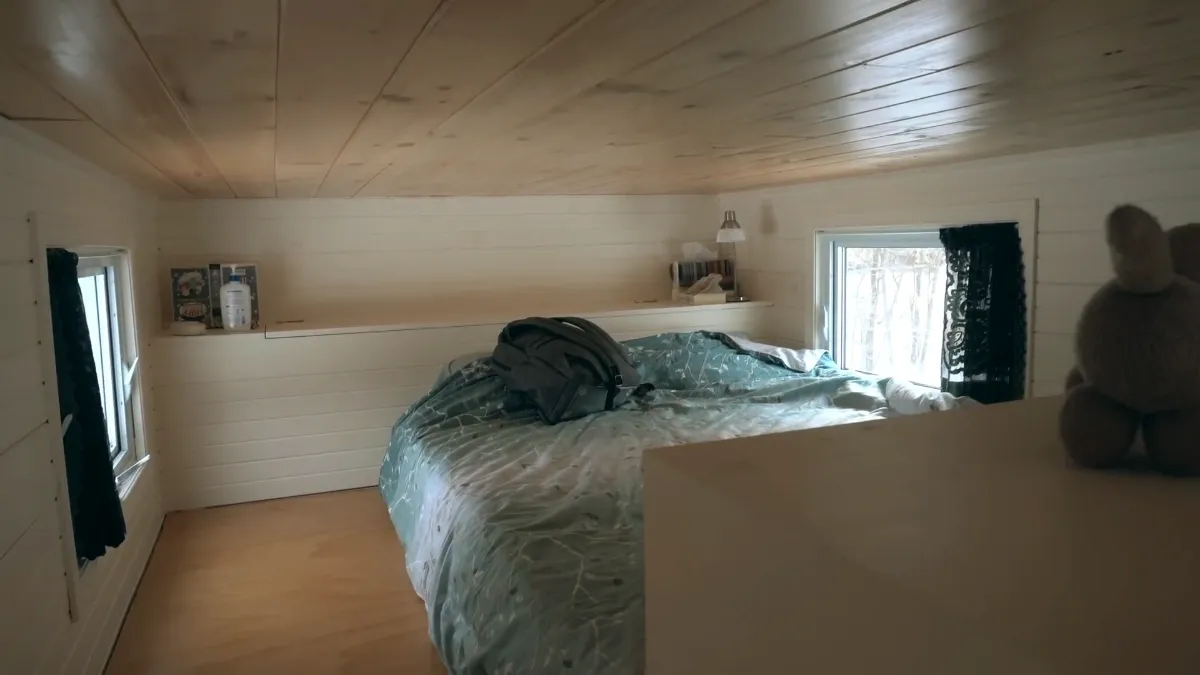
Getting up there isn’t exactly ladder, not exactly stairs—more like clever notches built to solve one very specific problem in a very specific space. It’s the kind of solution that tells you a builder cared.
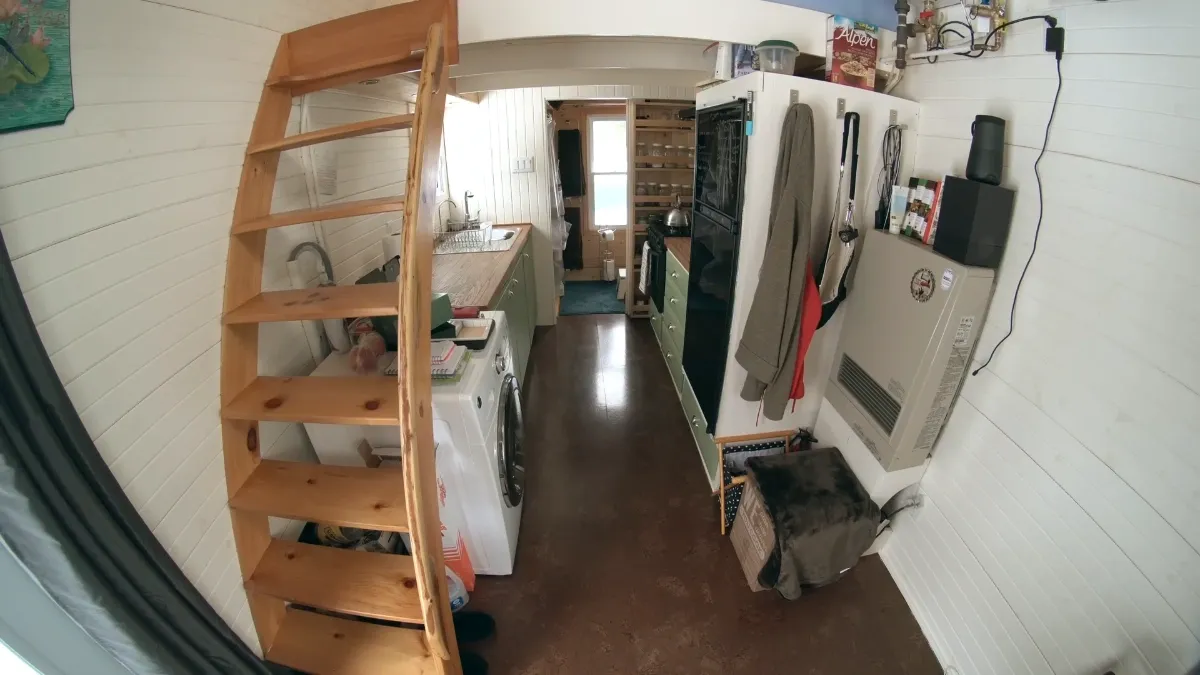
Power, Heat, and the Laundry Hamper That Isn’t
Electricity is regular for now, but the plan is solar next time she moves. Less plugging in, more independence, and one step closer to being fully off-grid.
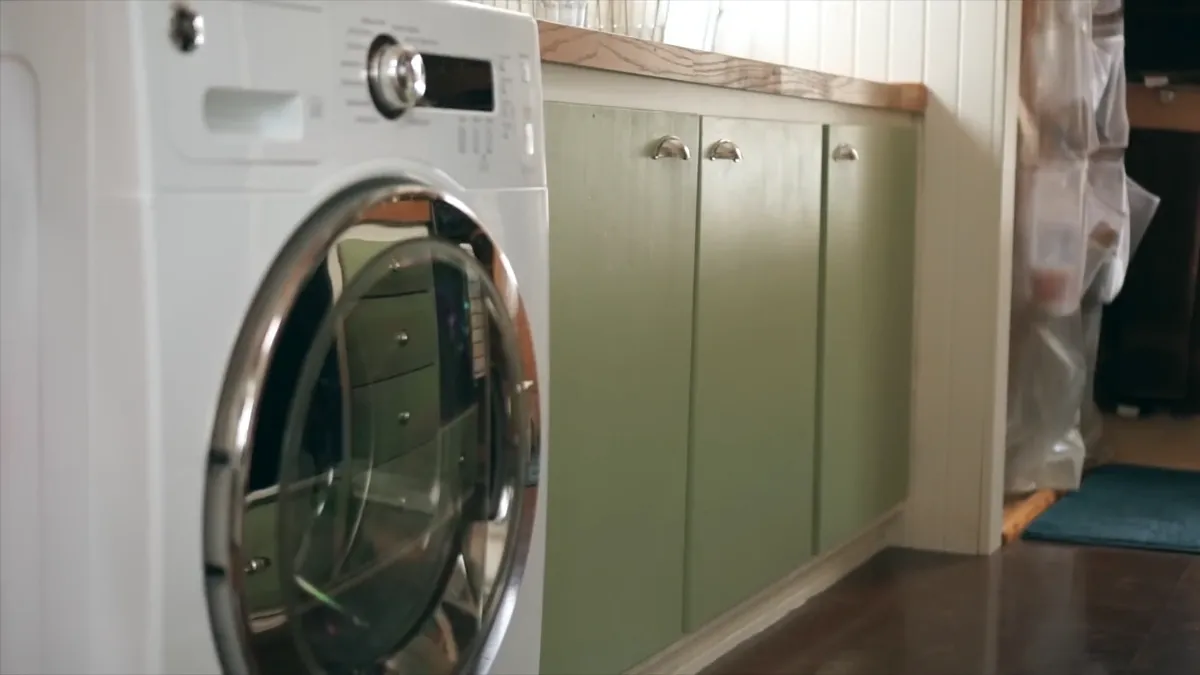
There’s a washing machine tucked in, technically. The thing drinks water like a camel, so until she’s somewhere with better setup, it’s a very fancy basket for clean clothes that never got washed.
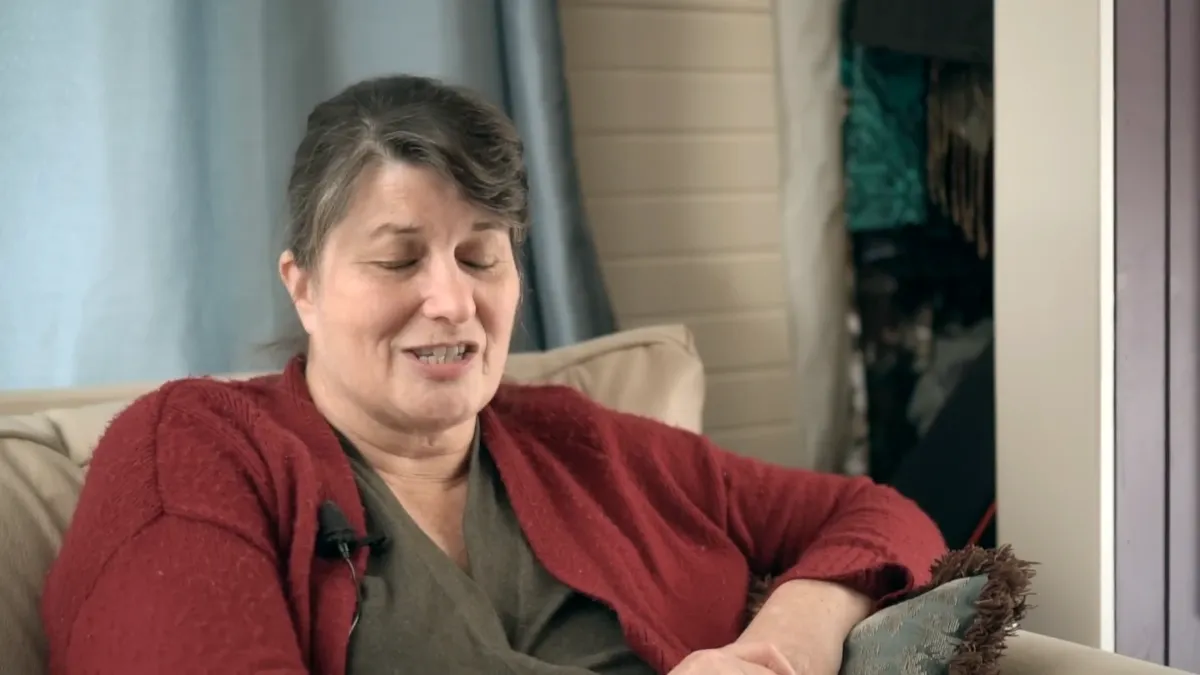
Heat, hot water, and cooking run on propane. It’s straightforward and works hard, especially the furnace, which turns the tiny space cozy with not much effort.
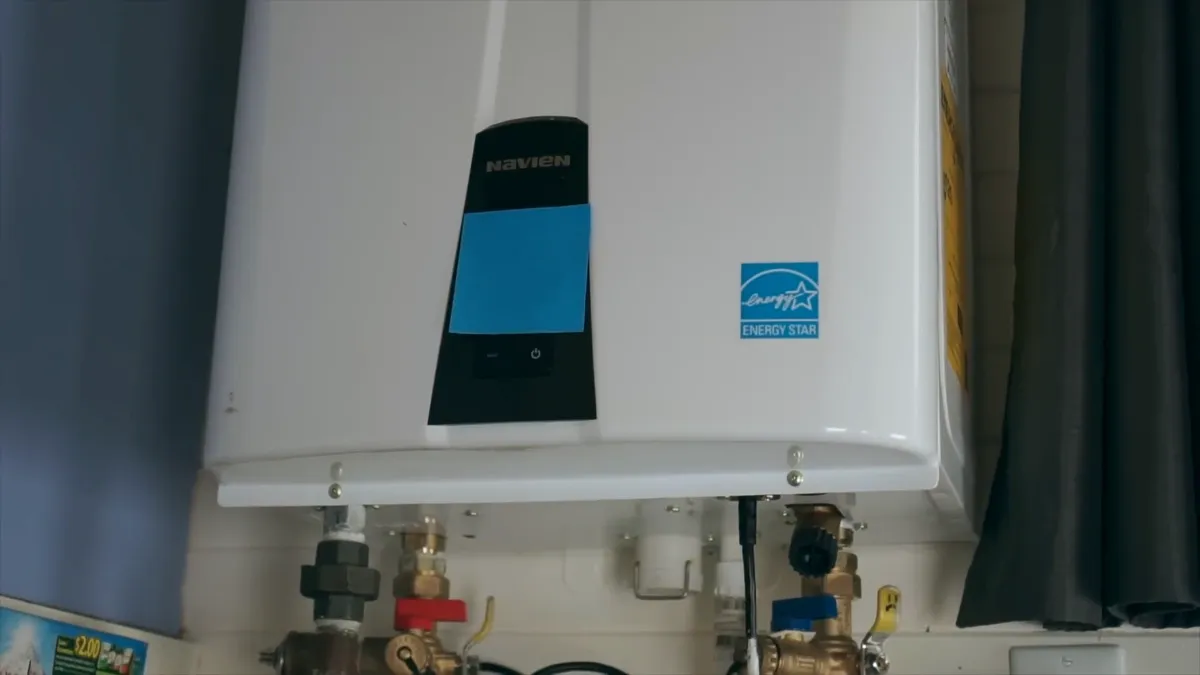
Bathroom-wise, she went with a composting toilet. If she could redo anything, it’d be switching to a simple dry setup with buckets—lighter, easier to empty, fewer contortions required.
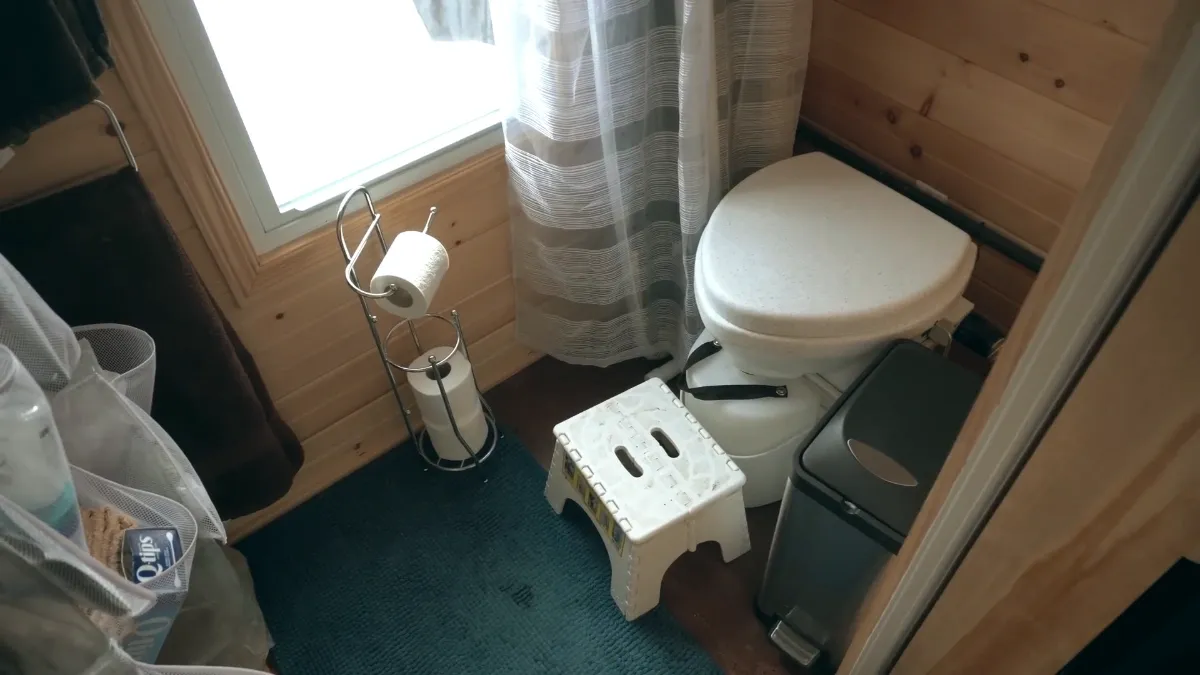
The Nerdy Build Stuff That Quietly Matters
The structure is not your typical stick-frame box. Oversized roof trusses double as the framing, and the walls got rigid foam on the outside, then spray foam that grabs onto it—no heavy plywood. All of it was designed to keep the weight down but the house solid.
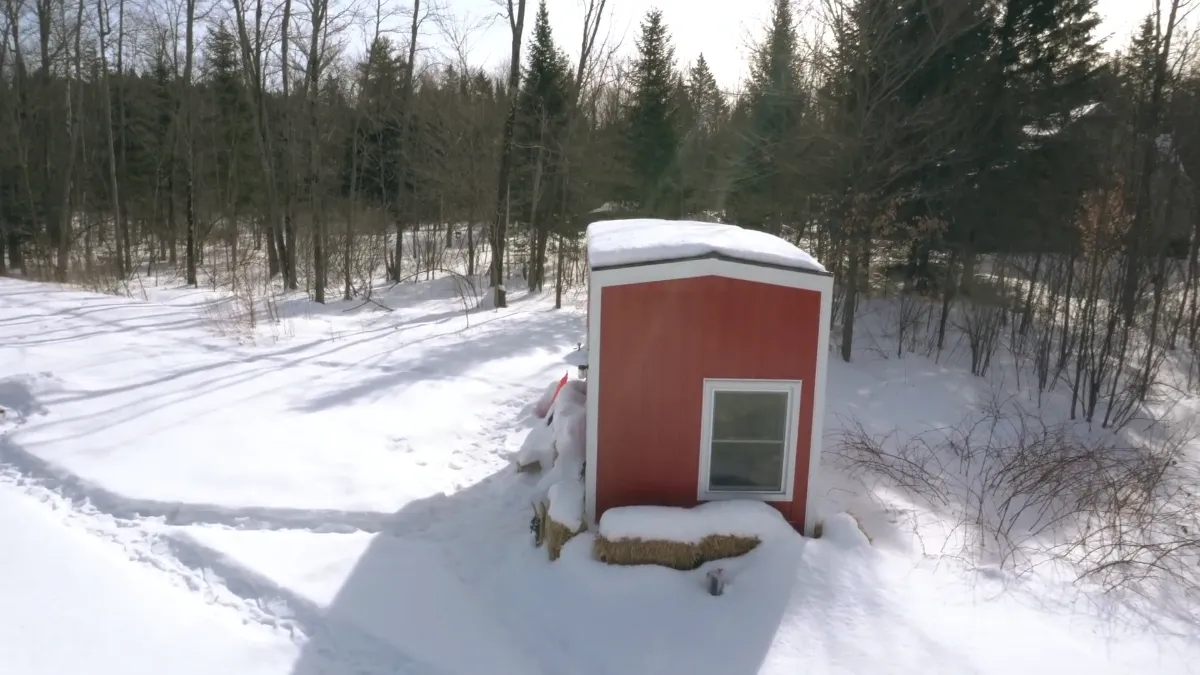
The end result feels like a hug. She walks in after work, drops the day at the door, and the whole house just holds steady. Simple as that.
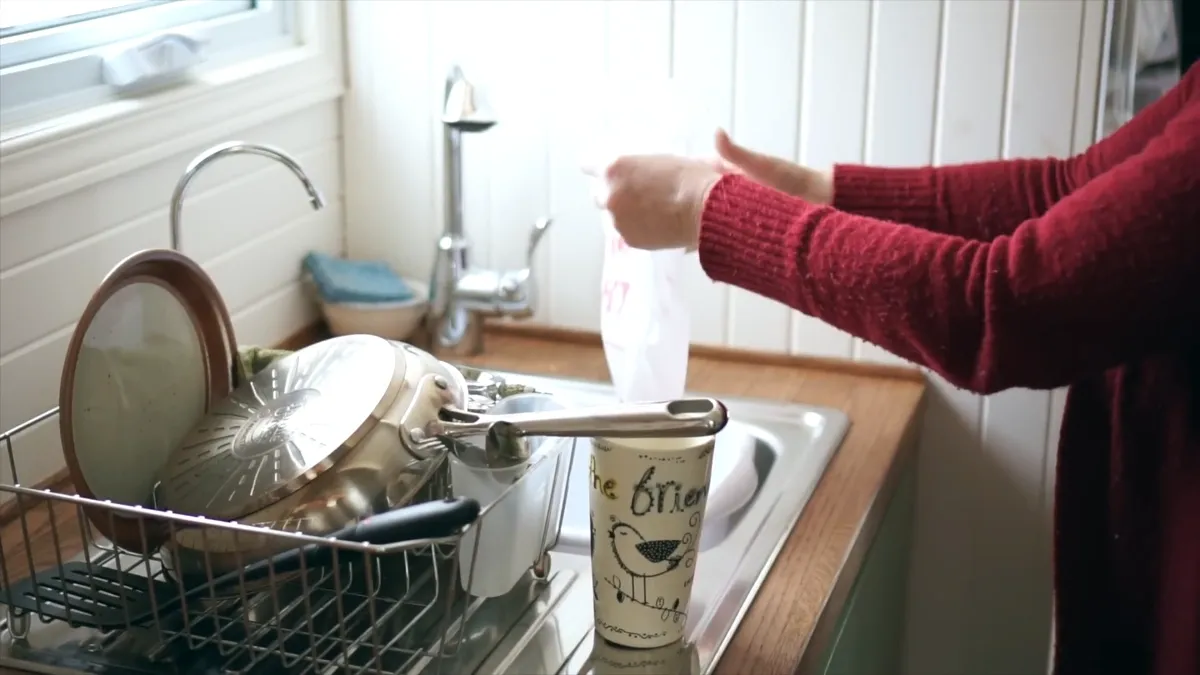
Winter Tries, She Adapts
Early on, she thought the place wasn’t holding heat like it should—then stepped outside and realized it was forty below. Perspective helps, and the tiny pulled its weight.
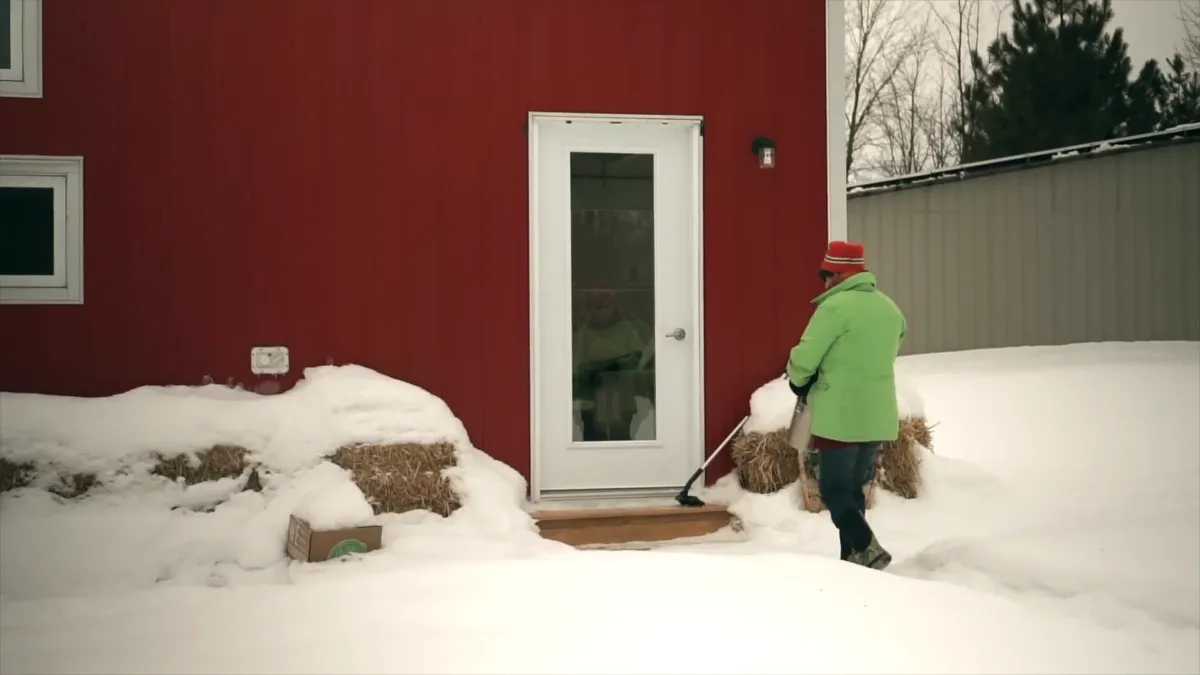
To keep the floor warm, she ringed the base with straw bales. Wind stopped tunneling underneath, the floor stayed okay, and come spring those bales turn into garden beds. Two birds, one thrifty solution.
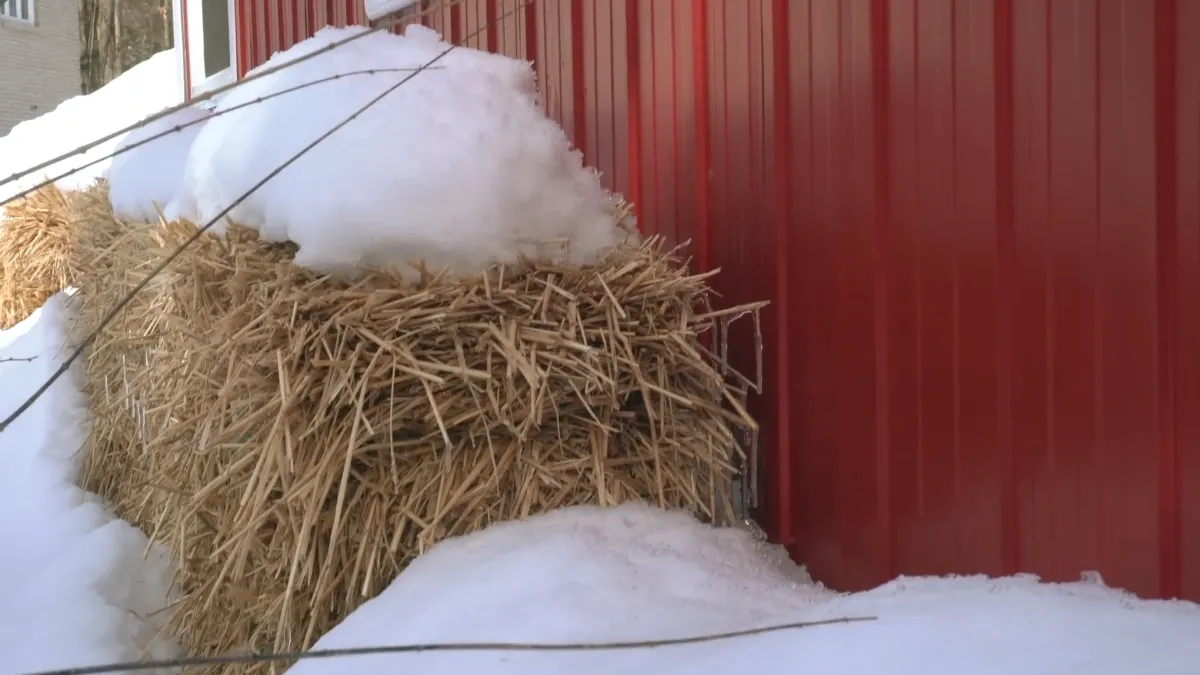
There was one snag: a frozen drain. Heat tape would’ve saved the day, lesson learned, and added to the mental checklist for the next cold snap.
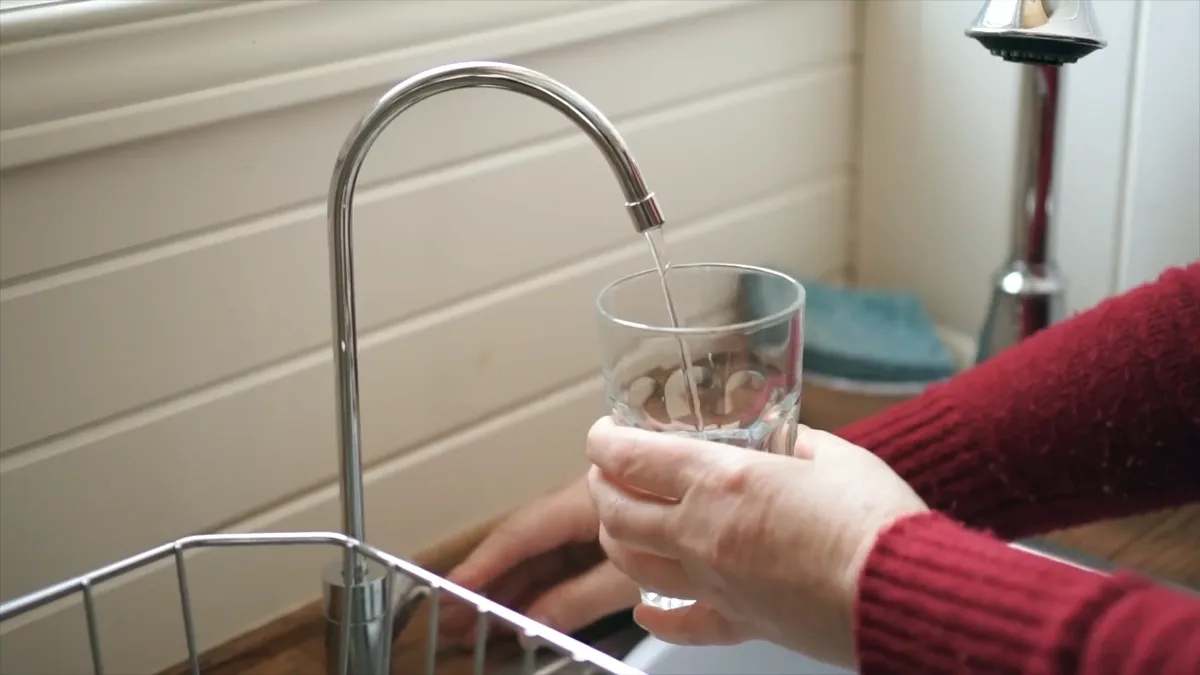
The upside of that composting setup is big—no septic needed. That’s real money saved and one less system to worry about.
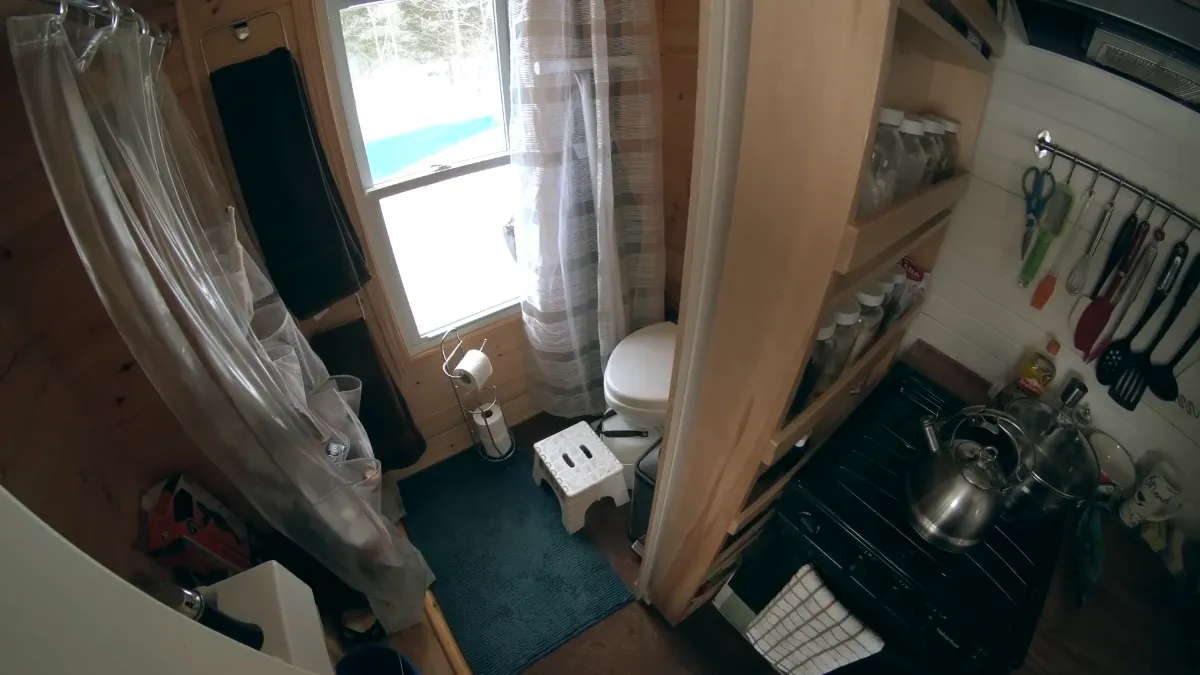
Propane heat means humidity, so mornings are a quick routine. Windows open while she gets ready, air turns crisp, windows close, and the place resets for the day.
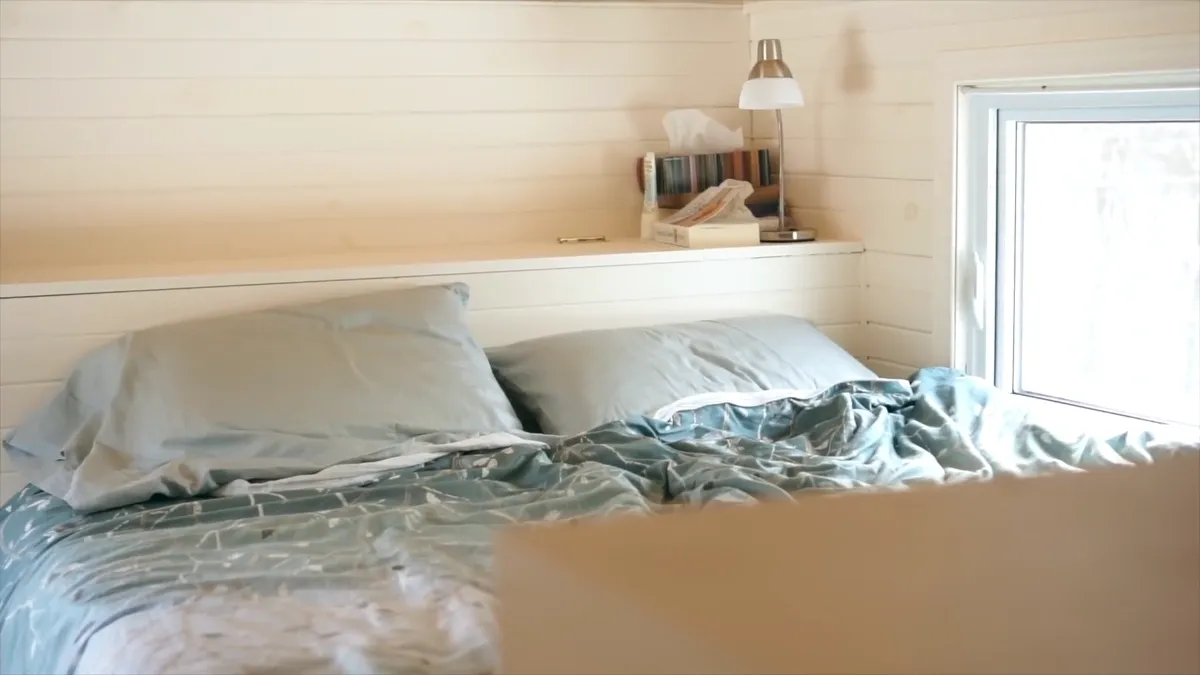
The Part That’s Still Technically Not Allowed
Here’s the complicated bit: where it’s parked, this kind of home isn’t officially allowed. It’s nerve-wracking to invest in something the rulebook hasn’t caught up to—but it’s also her life, and it clearly works.
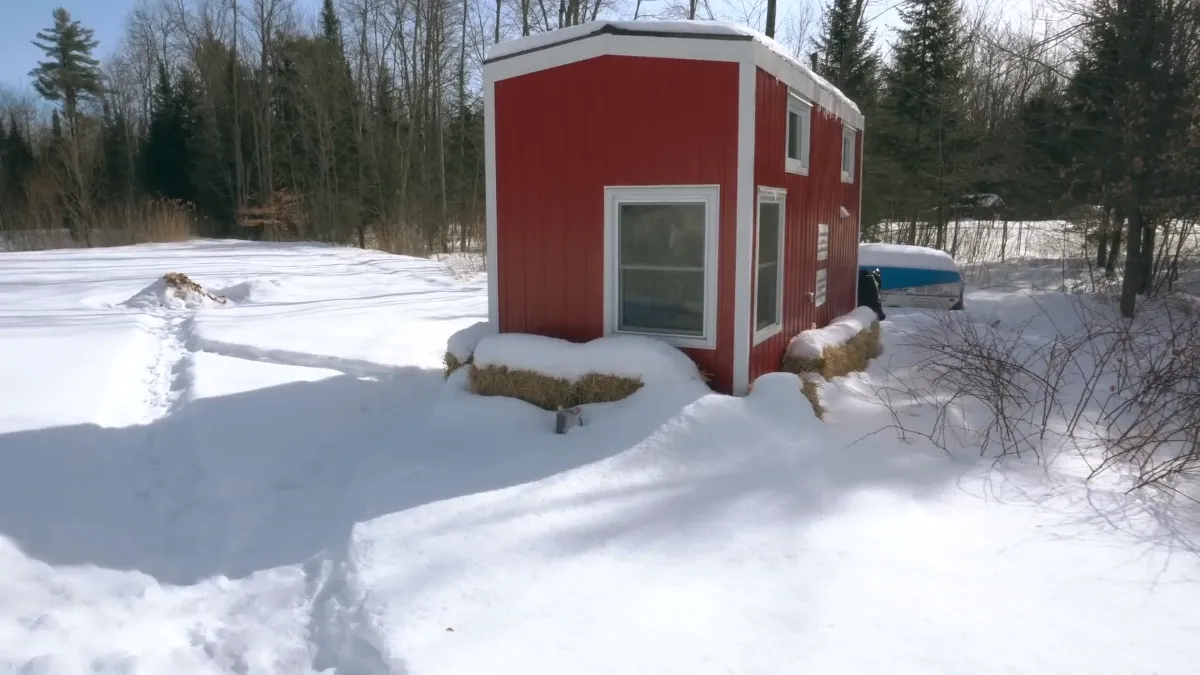
She’s aiming for a tiny-friendly community next, trees and trails and neighbors who get it. Until then, she’s staying put, grateful, and pretty certain the trade-offs were worth it.
